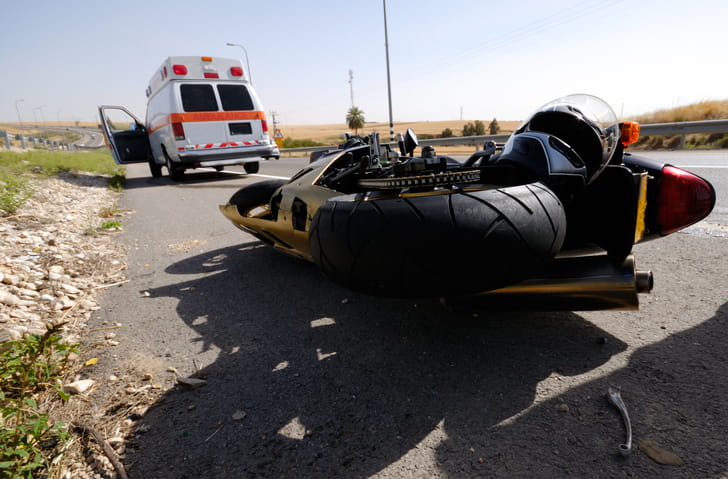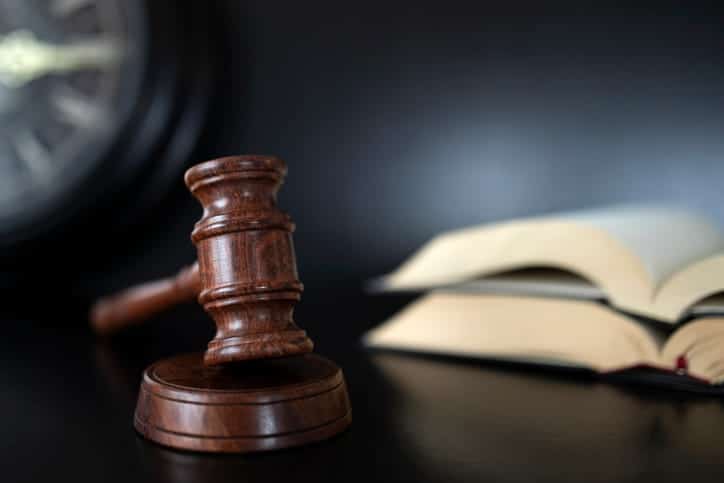What To Do After a Motorcycle Accident

Being the victim of a motorcycle accident is a traumatic experience. The aftermath of the accident doesn’t make it any easier. Knowing what to do after a collision may be daunting and overwhelming; however, there are certain steps that need to be taken to protect yourself legally and medically.
If you or a loved one has been the victim of a motorcycle accident, the experienced professionals at Jack Bernstein, Injury Attorneys can help. We are dedicated to ensuring you have the knowledge necessary to handle situations like these in an efficient and timely manner to ensure the best outcome.
Were you injured in a motorcycle accident? Contact Jack Bernstein, Injury Attorneys now!
What do I do after being involved in a motorcycle crash?
Instinct and adrenaline may be in overdrive immediately following a collision, but it is important to keep a level head. Follow these critical steps to protect yourself medically and legally following a motorcycle crash:
- Leave the bike: Your first instinct may be to check on, try to move, or retrieve any broken pieces of the motorcycle. However, trying to move the bike may result in exacerbating any injuries you may have incurred. Just because you do not immediately feel any injuries, does not mean they aren’t present. Moving your motorcycle after the accident can also compromise evidence. Your insurance company will likely want photos to determine the potential cause or any contributing factors. Moving the motorcycle could hurt any claim you submit.
- Get to safety: The location of the crash immediately following the accident is a hot zone. Remaining in the immediate vicinity can put you in the direct path of further danger and injury. It is essential to move out of the way if you are able to do so.
- Do not remove any gear you are wearing: You may feel compelled to remove your gear following the collision, but it is important that you leave your gear on and limit movement until emergency services arrive. Due to adrenaline and disorientation, you may have sustained injuries that you are unaware of. Removing your gear could cause further damage to an already present injury.
- Call for help: When trauma is experienced, it is common for individuals to lack the capacity to process the situation appropriately. In spite of these challenges, it is crucial that emergency personnel are dispatched to the scene. If you are unable to call for help yourself, signal someone within proximity, address them directly, and ask them to make the call for you.
- Remain calm and assess the situation: Depending on the severity of the crash, you may experience some form of shock. Try to remain calm and remember to breathe. If you are able to assess the situation appropriately, look and feel for any indications that you may have sustained any injuries. Attempt to establish an accurate account of what happened so you can provide detailed information to the appropriate authorities and receive efficient medical care.
- Gather evidence: For legal and insurance purposes, gathering evidence is an essential move. If and when possible, you or someone at the scene should take photos and videos of the collision. Things to photograph:
- Your bike
- The other vehicle(s) involved in the crash
- Skidmarks
- Gravel
- Road signs
- The position of the sun
- View obstructions
- Every possible angle of the location
- Direction of traffic
- Communicate with law enforcement: It is likely that law enforcement will ask you to record a statement of the collision. Be honest and direct but take care not to admit any fault until you are able to think critically and process what has happened.
- Consider hiring legal counsel: If you feel that you have sufficient grounds for a personal injury suit, contact experienced legal counsel to assist you with your case. Your legal team can instruct you on what to do, handle any communications necessary between your insurance company and other parties involved, and take the appropriate actions to settle the case in your best interest.
If you find yourself in need of experienced legal counsel in the Tampa area, contact a Tampa motorcycle accident attorney as soon as possible.
Do I need an attorney after a motorcycle accident?

Seeking the assistance of an attorney is not required, but it is highly recommended. Seeking the compensation you deserve following a motorcycle accident can be stressful and cumbersome. Employing the help of a personal injury attorney can help when navigating motorcycle and personal injury laws, as well as recovering any compensation related to the incident. If you were not at fault, an attorney can fight for restitution for medical expenses, lost wages, pain and suffering, property damage, and any other related costs.
If you or a loved one were the victim of a motorcycle accident in Tampa, you don’t have to take on the costly repercussions alone. If someone else was the cause of your damages and injuries, you have the right to demand appropriate compensation. The legal representatives at Jack Bernstein, Injury Attorneys are ready to fight on your behalf.
Get your free legal consultation regarding your motorcycle accident. Contact Jack Bernstein, Injury Attorneys now.
Sources:
Bertram, S. Do You Know What To Do If You Come Across A Motorcycle Accident?
